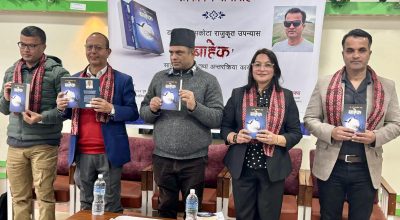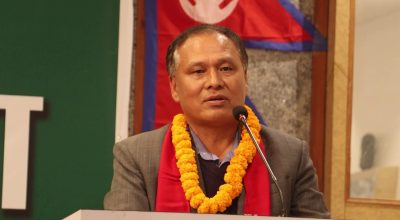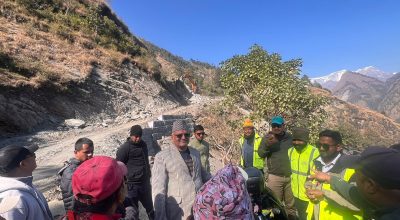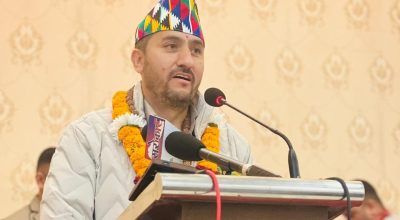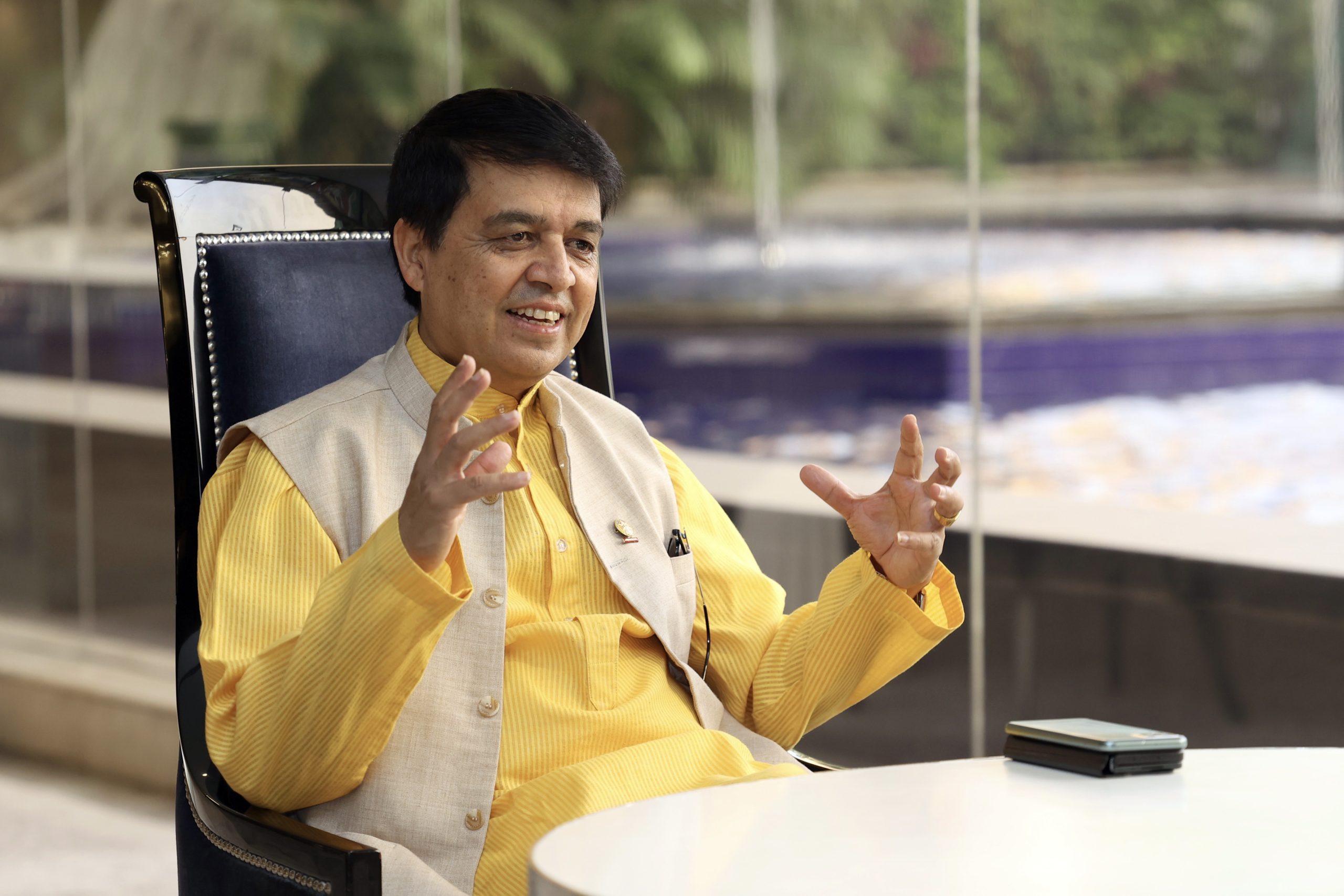
During the Nepal Business Summit organized by the Confederation of Indian Industry and Confederation of Indian Industry Thursday evening, businessmen from both the countries (Nepal and India) also discussed about investment opportunities in Nepal. A large number of industrialists from both countries participated in the summit. Prime Minister Puspa Kamal Dahal ‘Prachanda’, Minister of Finance Dr. Prakasharan Mahat, Minister of Foreign Affairs NP Saud, Minister of Energy Shakti Bahadur Basnet and Union Minister of India Piyush Goyal also participated in the summit. One of host of the Summit, FNCCI President Chandra Prasad Dhakal spoke with media persons about the importance of the summit and it’s relevance, and outcome. Excerpts:
How do you view Prime Minister Prachanda’s visit to India on behalf of the President of the FNCCI?
The largest delegation from the private sector is participating in Prime Minister Prachanda’s visit to India this time as well. We, the representatives of the private sector, would like to thank the Prime Minister for giving importance to the private sector. Some of the agreements reached during the visit are important in themselves. Prime Minister Narendra Modi himself announced the decision of the Indian government to acquire 10,000 megawatts of electricity in 10 years, which is important in itself. It is our understanding that this has also paved the way for more investment in the private sector. We expect that this will further diversify the investment in the entire sector of Nepal. It will also ensure investment. It will greatly help the overall economy.
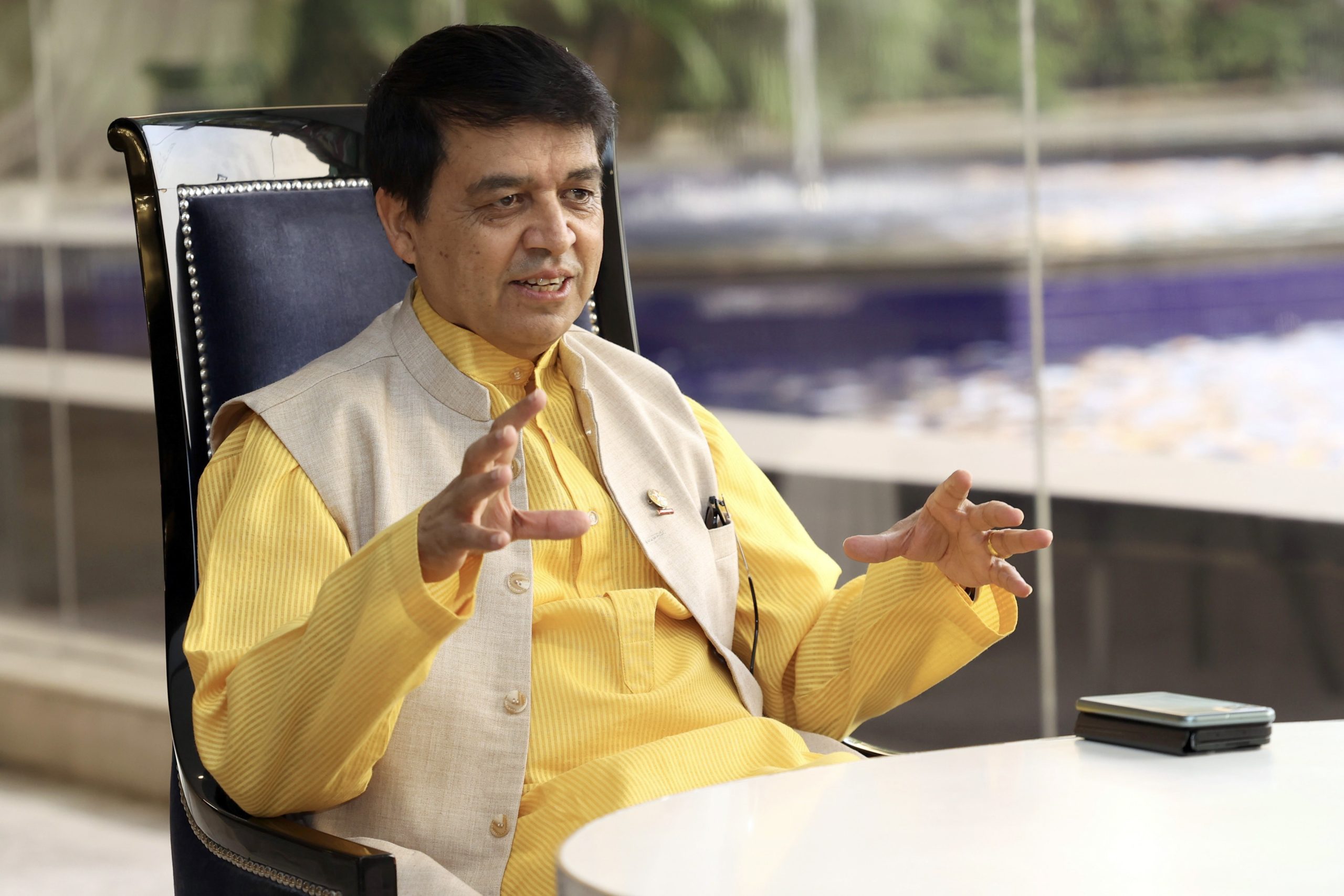
At the same time, other agreements and understandings reached during the visit will speed up the process of development and prosperity of Nepal. With the confidence shown in during the press conference, it can be expected that more ease will be seen in matters of bilateral interest in the future. I think it has given a clear message in general. Apart from the issue of hydropower sector, development of road network, digital payment gateway, railway line extension, construction and operation of integrated check post, etc. have also been clarified.
What was the purpose of the business summit organized by Confederation of Indian Industry? What message are you trying to convey by organizing such a program during the Prime Minister’s visit?
This is an important opportunity in itself. Through this, we also got an opportunity to put the common opinion and common interests of the industrialists of both countries together. We also gathered the industrialists of India at one place. Apart from our Prime Minister, India’s Industry Minister Piyush Goyal also participated in that summit. The expression he gave in that program is also important for us. His appeal to the Indian private sector for investment in Nepal is very positive and meaningful. The issue that he has publicly encouraged Indian businessmen to invest in Nepal is also important for us Nepali businessmen.
On the same occasion, the idea that the Prime Minister presented that there is an opportunity to invest in Nepal, the kind of support and facilitation the government has given to it, I think the Indian friends must have been impressed to some extent. The government has encouraged the private sector for investment and the prime minister has also encouraged us that the process of development cannot move forward without the private sector. This aspect is a matter of happiness for businessmen of both countries. More than 80 percent of the private sector’s contribution also shows how important our role is. It is clear that the development and prosperity of the country cannot take the expected speed unless the internal and external investment is facilitated and this understanding has come to the surface. We are also excited about this and we are still feeling responsible for building the country.
The way Prime Minister Prachanda told the Indian investors to come and invest in Nepal with an open heart at the business summit, I think it must have influenced something. Some Indian business friends have inquired with us about this matter and we are trying to convince them.
Here, during his speech at the summit yesterday, Prime Minister invited for investment in Nepal by presenting examples of Indian companies investing in Nepal and making good profits. How confident do you think Indian investors can be from this?
Of course, the progress made by Indian companies investing in Nepal is a matter known to everyone. I also requested the industrialists and businessmen from India to see good examples of set rules Nepal has adopted. In terms of umbrella organizations of the private sector, this description is also exemplary for us and should be. Three of the five largest companies in Nepal that pay the highest taxes are Indian investments. Indian investment companies have given good returns, they have become big tax payers in Nepal. Among them are Everest Bank, Nepal SBI Bank, Dabur Nepal, Unilever and others. Foreign companies also contribute to the total revenue. From this it can be seen that there are many opportunities for investment in Nepal. This sentiment is also seen in the expression given by the Indian Industry Minister in yesterday’s program.

It is clear that one can easily invest in every sector. Indian businessmen can invest on hydroelectric power, tourism, service sector, physical infrastructure etc. Our environment is equally diverse. The opportunity given by nature is equally important. We are equally prosperous religiously and culturally. Areas like Pashupatinath, Muktinath, Lumbini can be made the basis of economic prosperity as well. On the other hand, we are the 11th largest country in terms of sales of goods from India to Nepal. The trade and transportation relationship between Nepal and India is another special aspect. Manufacturing goods in Nepal and exporting them through India is also easy in terms of many benefits received in the world market. It is also unique in terms of duty free.
What were the expectations of the Indian industrialists ? Were those topics addressed or not?
The biggest issue was the issue of trade deficit. The latest agreement gives great relief to this subject. Similarly, it is felt that the kind of agreement reached in the hydropower sector will finally address the demand of the private sector. The government of India has agreed to bring 10,000 megawatts of electricity in 10 years, which has excited the entire private sector. In terms of the construction of the international transmission line, it was very good. Similarly, I understand that the matter of air network and air route has been well raised and I think that the result has also come out well. I have received information that the Prime Ministers of both countries have agreed to it. Similarly, the agreement regarding digital payments has established another dimension. It is believed that the agreement to build an integrated check post, railway, pipeline, bridge at Jhulaghat will give very good results and it will also address the demand of the private sector.
What do you think the agreement between Nepal’s electronic payment service provider and the Indian company will help in electronic payment?
The kind of complexity that was in international payments has been made easier by this kind of agreement. Before this, there was an agreement of this kind with other companies in the private sector, but it could not gain momentum because it was not at the government level. It has made it easier for other companies in the private sector to do more work in the future. Overall, it has become easier for digital payments. Students coming to study in India, patients coming for treatment, Nepalese visiting and Nepali citizens working here will feel more comfortable. This has also removed the complexity of traveling with cash at the border as a whole.
Currently, the country’s economy is in crisis. How can private sector join hands with the government to address this issue?
Problems like covid, Russia-Ukraine war are the main reasons behind the problem in our economy. There was also complexity due to problems in policy making. In order to get out of this, it is necessary for both the government and the private sector to cooperate. On behalf of the private sector and the government, the regulator, the central bank, should all pay attention. The entire sector should pay attention to it. The overall system should make an honest effort. The country will move forward in the right direction only if the overall sector is in order. It is believed that the problem can be solved in a short time if we move forward thinking. In order to get rid of this crisis, we have put forward some visions through FNCCI. More support and assistance from the government is expected.






